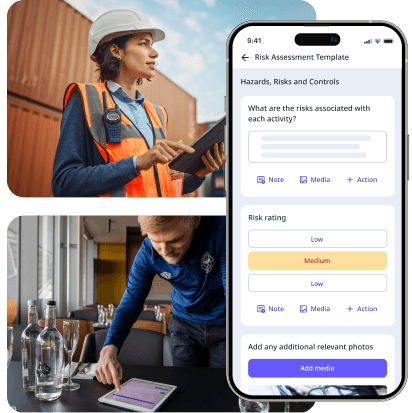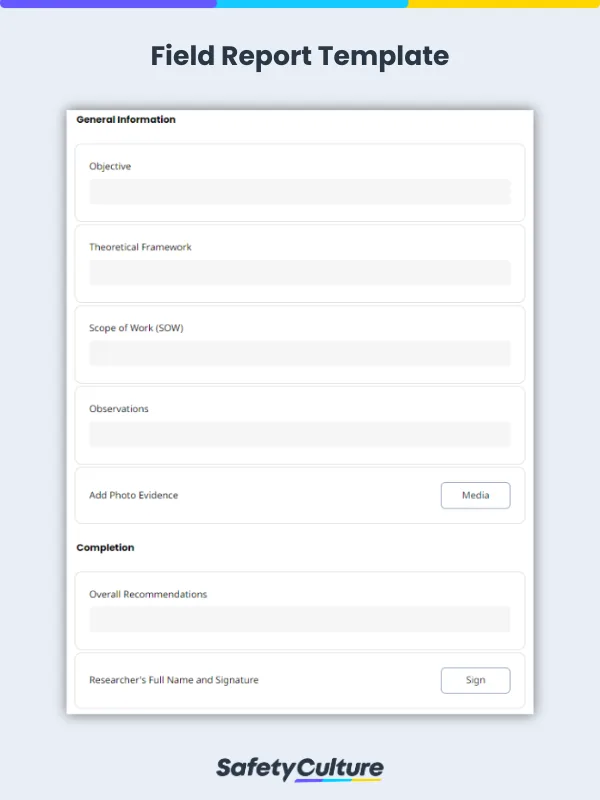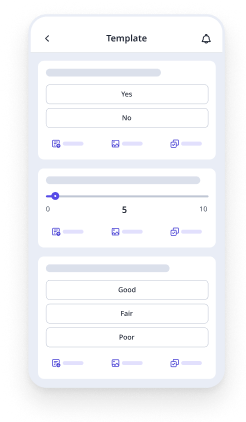Published 26 Sept 2025
Article by
6 min read
What is a Field Report?
A field report is a detailed documentation of observations and analysis of specific phenomena, behaviors, processes, people, and places. Grounded in theoretical frameworks and researchers’ analysis, it aims to identify solutions for a particular project or case study.
What is the Purpose of Field Reporting?
The purpose of field reporting is to gather information on field operations, which is then used to analyze and compare data over a theoretical framework.Field reporting is essential to various industries such as :
Construction
Journalism
Education
Medicine
Management
It helps in observing safety programs outside the office, identifying challenges in implementing standards and protocols, capturing information on how resources are managed, and discovering new processes and effective solutions for the project.
What is the Format of a Field Report?
There is no definite way to format a field report. However, there are some elements that should be incorporated into every report. At a minimum, a field report should include:
The name and contact information of the person who wrote the report
The date the report was written
The location where the fieldwork was conducted
A description of the work that was performed
The results of the work that was performed.
Any recommendations for future work
A list of references used in the report
Appendices containing supporting information, such as images, charts, or data tables
More detailed field reports may also include:
An Executive Summary, which provides a brief overview of the most important points in the report
A Table of Contents, which helps the reader find specific information in the report
Headings and subheadings, which help organize the information in the report
A Glossary of Terms, which defines any specialized vocabulary used in the report
A Bibliography, which lists any sources used in the preparation of the report
The format of a field report can vary depending on the type of work being reported on, the guidelines set forth by the person or organization commissioning the report, and the preferences of the person writing the report. However, by including the elements listed above, you can be sure that your report will contain all the information that is typically expected in a field report.
How to Effectively Write a Field Report
A field report focuses on the factual details of a project case. It should cover the circumstances and contributing factors that can help one understand how theory applies to real-world scenarios. Below are the main steps in effectively writing a field report:
1. Define the objective(s) of the field report
Clearly state the purpose of the field report to determine the focus and provide the right information needed by the organization. A field report should also define the nature of the organization, the setting of observations, and the methods used to gather data.
2. Create theoretical framework
Creating a theoretical framework is as essential as knowing the facts when creating a field report. Gather information based on statistics, news, and research to better understand the topic at hand. A theoretical framework guides researchers in determining the data that need to be measured and set as a baseline for comparison to get the needed information.
3. Define scope of work (SOW)
Determine a detailed plan on how to achieve the objectives set by the organization. Evaluate the timeline needed to finish the observation, state the deliverables, and record any potential milestones, risks, and hazards.
4. Conduct a field observation
Accurately document the changing aspects of the situation and record details gathered through analysis and observation. Clearly explain the investigation and adhere to the initial plan and methodology. Document the following:
Physical characteristics of the setting
Demographics
Impact of actions and behavior of the subject
Use of language
Description of activities
5. Use a field report checklist
A field report checklist is used to guide researchers on documenting their observations. It helps monitor the work in progress and staff performance in achieving the task assignments and deliverables.
What is a Field Report Template?
A field report template is a readily-available document that organizations can use when conducting field reports. It provides users with the essential elements needed to produce a comprehensive report and avoid missing important items or areas that are to be observed.
Although field report templates can be paper-based or electronic format, utilizing digital templates that allow you to modify and edit them according to preference and business needs, offers a lot of advantages.
What to Include
A general field report template consists of the following items:
Site name
Date
Full name of researcher/reporter
Exact location of the project (where the field report is to be conducted)
Objective
Theoretical framework
Scope of Work (SoW)
Observations
Recommendations
Signature of researcher/reporter and other authorized people
How to Use the Field Report Template
Since field reports are ideally accomplished using a centralized document, ready-to-use templates can be a go-to for organizations that perform this type of analysis regularly. If it has to be filled out by multiple people in your organization, templates that are used in a digital format can aid with access, data accuracy, and the need for modification capability.
Steps to Using the Field Report Template
Follow the steps below to create an efficient template:
Fill the general information field – Start the analysis for the project/endeavor by discussing the objective, theoretical framework, SOW, and observations noted. Be as detailed as possible since this will be the backbone of the research.
Add photos/media as evidence – Attach photos or media as supporting details for the analysis. This would provide additional integrity to the research.
Create actions or notes – If there are side notes or comments that need to be documented, put them in the corresponding field of the file for easy identification.
Provide overall recommendations – Once done with the initial part of the analysis, consider all the factors involved and form a recommendation that is based solely on the result of the research conducted.
Complete the report – Add a digital signature before finalizing the report. Share them with team members and relevant stakeholders for immediate feedback or process change implementation.


